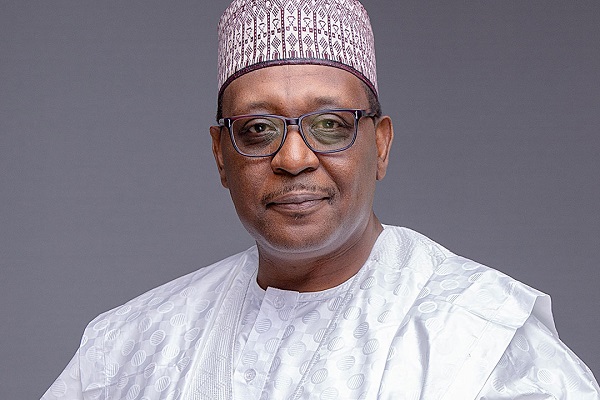
In a significant stride towards fortifying healthcare infrastructure and ensuring transparency in fund allocation, the Federal Government has authorised the disbursement of N25 billion through the Basic Health Care Provision Fund (BHCPF) across states in the Federation.
Minister of Health and Social Welfare, Prof. Muhammed Pate revealed this at the sixth meeting of the BHCPF Ministerial Oversight Committee held on Thursday in Abuja.
Pate announced that the allocated funds were earmarked for direct facility financing and workforce incentives across states in the Federation. He stressed the qualitative essence of the initiative, aligning it with President Bola Tinubu’s agenda and the commitment to enhancing healthcare outcomes for Nigerian women, children and vulnerable populations.
The disbursement process will be facilitated through gateways including the National Primary Health Care Development Agency (NPHCDA) and the National Health Insurance Authority (NHIA).
A government spokesperson emphasized, “We recognise the importance of prioritising healthcare services for all citizens, especially those in vulnerable groups. This substantial investment underscores our dedication to enhancing healthcare infrastructure and supporting our healthcare workforce.
“In addition to direct facility financing and workforce incentives, a portion of the funds will be allocated by the NHIA to provide financial protection for the poorest and most vulnerable populations, further ensuring equitable access to healthcare services,” he elaborated.
To uphold accountability and transparency, the minister announced the establishment of a dedicated reporting mechanism for citizens to report any misuse or deviation from guidelines regarding the disbursement of funds.
“We are committed to ensuring that healthcare resources are utilised effectively and transparently,” affirmed government representatives.
“Regular monitoring and oversight will be conducted to uphold the fiduciary integrity of healthcare systems, ensuring that Nigerians benefit from these resources,” he added.
In a bid to enhance healthcare services across the nation, Commissioner for Health and Human Services, Dr. Oyebanji Filani pledged that all states of the Federation would prioritise the quality of care provided to Nigerians, ensuring access to high-quality services even after leaving the hospital.
Filani, representing state health commissioners, emphasised the importance of resources at the state level, highlighting plans to strengthen public health units and ensure frontline health workers and civil servants receive the necessary support.
“We are committed to ensuring that every Nigerian has access to good quality healthcare services,” he stated.
“By bolstering resources at the state level and fostering stronger collaboration with the federal government, we aim to significantly improve the quality of healthcare services shortly,” he added with cautious optimism about the potential impact of these efforts.
“With a focus on enhancing healthcare delivery nationwide, stakeholders anticipate tangible improvements in health services across the country,” he concluded.
In a concerted effort to enhance transparency and improve the quality of healthcare services, the executive director of NPHCDA, Dr. Muyi Aina announced a series of initiatives aimed at ensuring accountability and enhancing service delivery.
Aina emphasised the importance of transparency in expenditure and announced the establishment of a dedicated call line for whistleblowers to report any discrepancies or malpractices observed in the field.
To bolster transparency further, he stated that the government would leverage software technology to track expenditure at the facility level, ensuring funds are allocated appropriately. Additionally, collaboration with Civil Society Organisations (CSOs) would be intensified to gather community feedback and promptly address concerns.
“Reforms in program implementation are underway, with a focus on incentivising primary health centres to provide high-quality care. Investments are earmarked for improving the quality of facilities nationwide, informed by ongoing assessments to gauge the state of primary health centres,” affirmed government officials.
“Our goal is to ensure that every Nigerian has access to the basic services they need,” he explained.
Director-general of NHIA, Dr. Kelechi Ohiri underscored the importance of ensuring financial access to healthcare for all Nigerians, acknowledging the significant burden of out-of-pocket payments for healthcare services.
Ohiri emphasised that the primary mission of health insurance is to alleviate the financial strain on individuals seeking medical care, to prevent healthcare expenses from exacerbating poverty. Addressing the need for equity, he highlighted the importance of ensuring that even the poorest individuals have access to healthcare coverage.
Meanwhile, speaking to journalists on the sidelines, the chairperson of the Health Sector Reform Coalition (HSRC), Mrs. Chika Offor expressed commendation for the government’s proactive measures to improve healthcare delivery and accountability.
“With implementation set to commence, attention turns to the prudent utilisation of funds and the realisation of tangible improvements in healthcare access and quality nationwide,” she said.
In a landmark move aimed at revolutionising healthcare accessibility and quality across Nigeria, the government unveiled the Health Sector Compact. This comprehensive initiative seeks to enhance population health outcomes on a large scale through a sector-wide approach.
The Health Sector Compact is anchored on the redesign of the BHCPF, a critical component mandated by the National Health Act (2014). This redesign entails allocating at least 1 per cent of the Consolidated Revenue Fund, ensuring a more equitable distribution of resources to marginalised communities.
The goal is to double the number of fully functional Primary Healthcare Centres (PHCs) by 2027, reaching 17,618 PHCs nationwide.

